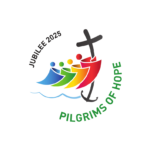Year 7
Read
- Following Frankenstein by Catherine Bruton
- Shades of Scarlett by Anne Fine
- Maddie Blue and the Dark World by Anna Goodall
- Spark by Mitch Johnson
- The Monsters of Rookhaven by Padraig Kenny
Research
- … a dumpsite from around the world
- … the Anglo-Saxons.
- …the genre of epic narratives (poetry or prose).
- …the differences between rich and poor in Victorian England.
- …the ghost story genre.
- …William Shakespeare and his life.
- …the life of a person who has made a difference in the world.
- …the poet William Blake.
Watch
- Real life dumpsite children- (75) Meet The Kids Surviving Off Trash Dumps – YouTube
- Shakespeare – Shakespeare’s theatre- (75) Shakespeare’s Theatre | i.am.Will Shakespeare | BBC Teach – YouTube
- Research what it was like for poor Victorians- (75) Victorian Workhouses – Dickens Show – YouTube
- Find an inspiring speech to watch.
Do
- Write a poem about one of the seasons.
- Write a story using the form of verse.
- Create a recipe and cook it based on a text you have studied this year.
- Create a blurb and design a new front cover for one of the books you have read (either in class or for pleasure) – what changes have you made and why
- Create a Booklet/Kahoot quiz on a topic you have studied in class. Ask your teacher if this could be played as a starter or plenary in your lesson.
Key words
Simile
Metaphor
Personification
Kennings
Superlatives
Pathetic fallacy
Characterisation
Antonyms
Suspense
Connotations
Symbolism
Rhetorical questions
Year 8
Read
- ‘Coming Up for Air’ by Lou Abercrombie
- ‘We Were Wolves’ by Jason Cockcroft
- ‘Stitched Up’ by Steve Cole
- ‘Me, In Between’ by Julya Rabinowich
- More challenging reads (older teen – seek parental permission first):
- ‘The Revelry’ by Katherine Webber
- ‘Black Canary: Breaking Silence’ by Alexandra Monir
- ‘Dangerous Remedy’ by Kat Dunn
- ‘A Monster Calls’ by Patrick Ness
Research
- …Gothic narrative tropes.
- Research and read ‘The Signalman’ by Charles Dickens.
- …Elizabethan drama, costuming and how the costumes were made. What does this reveal about courting and masked balls?
- …Petrarchan sonnets. How does Shakespeare incorporate this into his play, Romeo & Juliet? What does it reveal about Romeo’s love? How does this
- compare to a modern love poem by John Cooper Clarke, ‘I wanna be your vacuum cleaner’?
- …Greek theatre and Greek tragedy.
- …Arthur Conan Doyle and literary detective fiction.
Watch
- The British Library – The Gothic: The Gothic – YouTube
- Women in Shakespeare – Roles of Women in Elizabethan England: Women in Shakespeare | BBC Teach – YouTube
- National Theatre – An Introduction to Greek Tragedy: An Introduction to Greek Tragedy – YouTube
- ‘Flag’ by John Agard – Poems from other cultures: ‘Flag’ by John Agard (analysis) | English Literature – Poets in Person – YouTube
- The History of Literature – Detective Fiction: The Fascinating History of Detective Novels – YouTube
Do
- Find non-fiction newspaper articles/blogs to read – how do the writers create an engaging voice? Use this knowledge to write your own article about something you feel passionate about.
- Create a blurb and design a new front cover for one of the books you have read (either in class or for pleasure) – what changes have you made and why?
- Create a Blooket/Kahoot quiz on a topic you have studied in class. Ask your teacher if this could be played as a starter or plenary in your lesson
Key words
Gothic
Tragedy
Mystery.
Aside
Symbolism
Climactic
Year 9
Read
- To help prepare you for KS4:
- Lord of the Flies by William Golding
- An Inspector Calls by JB Priestly
- Animal Farm by George Orwell
- The Colour Purple by Alice Walker
- Frankenstein by Mary Shelley
- Strange Case of Dr Jekyll and Mr Hyde by Robert Louis Stevenson
For enjoyment and pleasure:
- Hollow Fires by Samira Ahmed
- Bone Music by David Almond
- The Agathas by Kathleen Glasgow
- The Cats we Meet Along the Way by Nadia Mikail
Research
- …the Jim Crow Laws.
- …Prometheus from Greek Mythology. Why was he important?
- …war poets such as Wilfred Owen, Siegfried Sassoon and Vera Brittain. What is their message about war? Why was Jessie Pope different?
- …the role of women in 1600s England to support your Shakespeare study.
Watch
- Interview with Malorie Blackman on ‘Noughts and Crosses’ and anti-immigration feeling in the UK: https://www.youtube.com/watch?v=A_8iSdsDXLI
Documentary on Wilfred Owen and remembering WWI: https://www.youtube.com/watch?v=zsPdEgC0wdk - Mr Buff Language Paper 1 help videos: https://www.youtube.com/watch?v=hMhQIX9DCcQ&list=PLqGFsWf-P-cAlttmXkEvJXCxqT-ZzFqAN
- Mr Bruff Language Paper 2 help videos: https://www.youtube.com/watch?v=yKZ_Tr2Y-CE&list=PLqGFsWf-P-cB-GSeqYup7PXId4pbldQVq
Do
- Find non-fiction newspaper articles/blogs to read – how do the writers create an engaging voice? Use this knowledge to write your own article about something you feel passionate about.
- Design a new front cover for one of the books you have read (either in class or for pleasure) – what changes have you made and why?
- Create a Kahoot quiz on a topic you have studied in class. Ask your teacher if this could be played as a starter or plenary in your lesson.
Key words
Prejudice
Discrimination
Oppression
Propaganda
Deceit
Dramatic irony
Enjambment







